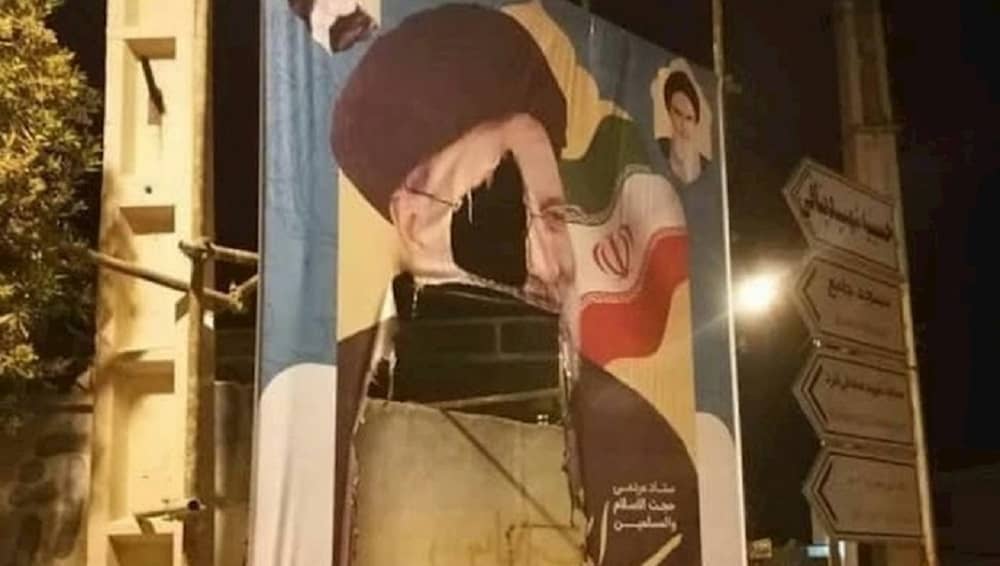
(PMOI / MEK Iran) and (NCRI): Iranian people are ripping posters of Ebrahim Raisi, the leading candidate for the regime’s sham presidential election.
The National Council of Resistance of Iran (NCRI), and the People’s Mujahedin of Iran (PMOI / MEK Iran), reported that the Iranian people boycotted the regime’s sham presidential election. However, it is commonly assumed that voting is merely a formality in which the vast majority of Iranians did not participate. This is something that even Iran’s state media has acknowledged.
The election has been denounced as illegitimate
The presidential election has been denounced as illegitimate in the midst of different protests, over various themes, by various groups during the last few weeks and months.
Pensioners demonstrated to draw attention to their growing inability to pay for basic necessities of life; workers gathered to demand unpaid wages; middle-class investors protested losses incurred as a result of a government-run investment scam; and participants were heard chanting slogans like “we have seen no justice; we will not vote anymore” in each case.
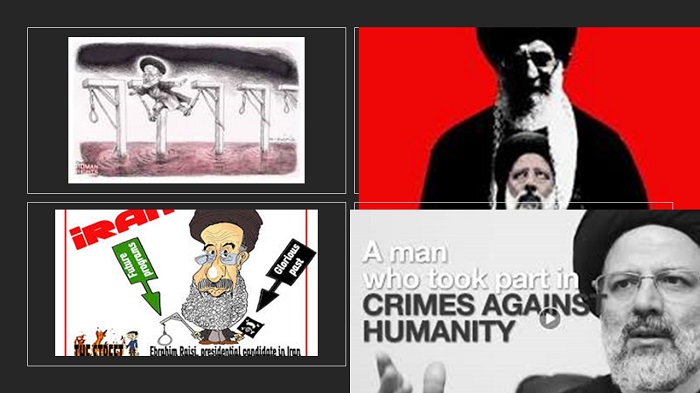
(PMOI / MEK Iran) and (NCRI): Raisi personally ordered the executions of thousands of MEK members.
Dissident group’s growing influence
Iranian officials and state media outlets claimed their support for the boycott as evidence of the prominent pro-democracy dissident group’s growing influence.
Their concerns about this expansion date back at least to the beginning of 2018, when the first of a series of uprisings featuring slogans rooted in the People’s Mujahedin of Iran (PMOI / MEK Iran) discourse took place.
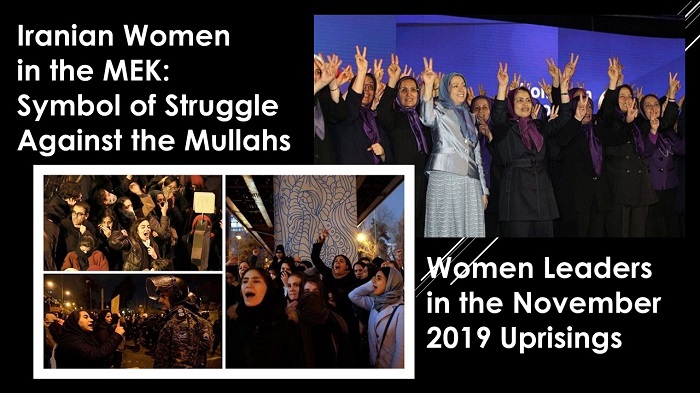
(NCRI) and (PMOI / MEK Iran): Women Leaders in the November 2019 Uprisings.
The uprising in more than 200 cities
The uprising included demonstrations in more than 200 cities and towns, and it called for the resignation or removal of all top officials, as well as a rejection of both the “hardline” and “reformist” branches of mainstream Iranian politics.

(NCRI) and (PMOI / MEK Iran): The Iranian regime is extremely concerned about the possibility of a nationwide uprising.
1988 massacre 30,000 political prisoners
Ebrahim Raisi’s reputation grew in earnest during the summer of 1988, when he was a crucial figure in Tehran’s “death commission,” which was entrusted with interrogating political prisoners and determining who among them remained faithful to the MEK and should be then, sentenced to death.
Across the nation, identical death tribunals oversaw the mass execution and covert burial of nearly 30,000 political prisoners, the majority of whom were executed by Raisi’s Tehran body.
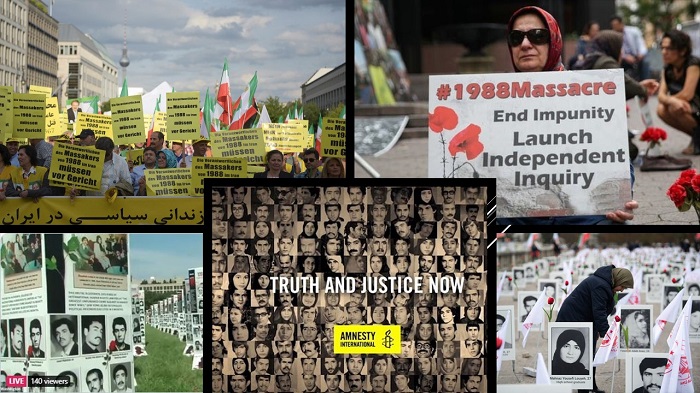
(PMOI / MEK Iran) and (NCRI): The mullahs must be held to account for what went on in1988.
Raisi’s reputation for cruelty grown in the recent uprising
Raisi’s reputation for cruelty has only grown since then, even during his time as chief of the judiciary. The emergence of a second widespread uprising put Raisi’s dedication to brutal repression to the test about eight months into his new post. The November 2019 protests erupted almost spontaneously in more than 200 cities and towns, with the same professions of support for regime change that had characterized the January 2018 campaign. Authorities retaliated by firing on groups of protestors, making mass arrests, and torturing prisoners on a systematic basis.
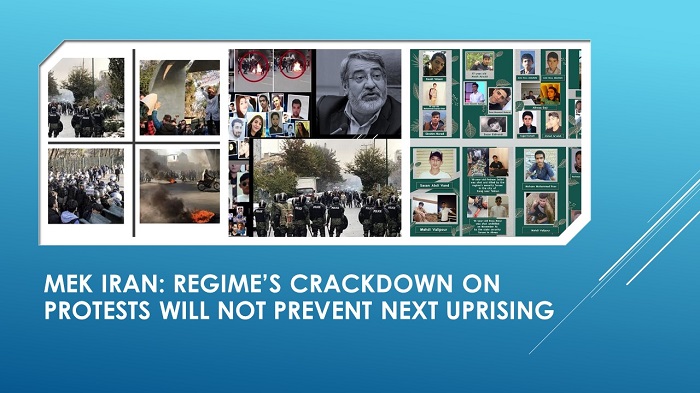
(NCRI) and (PMOI / MEK Iran): Regime’s Crackdown on Protests.
1500 Killed in Iran Protests Crackdown
The NCRI’s initial number of 1,500 shooting deaths during the uprising’s active days was later corroborated by Reuters.
The number of subsequent arrests is estimated to be about 12,000, with torture occurring over several months, according to an Amnesty International study on the aftermath of the rebellion.
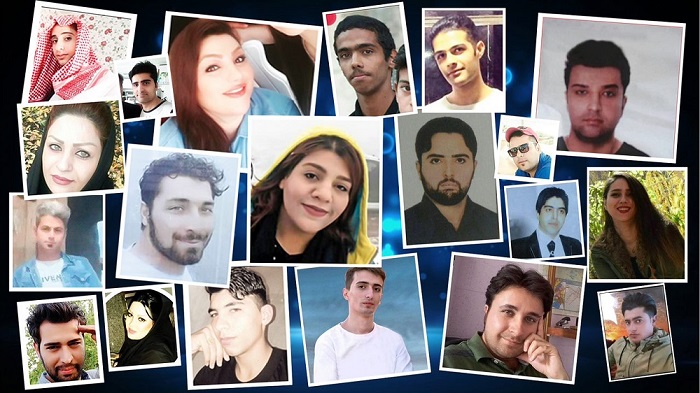
(PMOI / MEK Iran) and (NCRI): Reuters reported over 1500 have been killed, 27 children, during Iran protests started mid-November,
Policymakers in the US and EU must end the appeasement
Friday’s election will be the latest and, arguably, one of the most significant signs of the scale of the issue. It is clear that Iranian authorities would pay close attention to the conclusion and begin organizing their response as soon as possible. Policymakers in the United States and Europe must follow suit. Not only that, but they also have a responsibility to anticipate Tehran’s response and prepare their own, knowing that with Raisi poised to take over the presidency, major human rights atrocities will undoubtedly occur unless someone intervenes to stop them, and to end the appeasement trend.
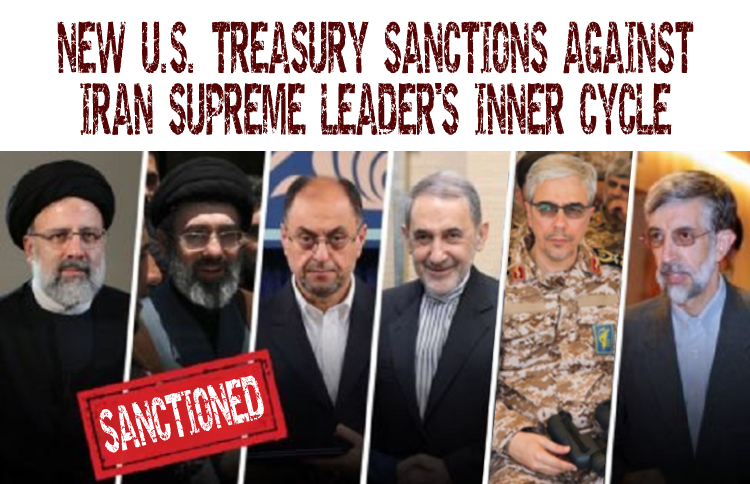
(PMOI / MEK Iran) and (NCRI): US Treasury Designates New Sanctions on Iran Targeting Supreme Leader’s Inner Circle.
Amnesty International’s respond
Amnesty International’s Secretary General Agnès Callamard said: “That Ebrahim Raisi has risen to the presidency instead of being investigated for the crimes against humanity of murder, enforced disappearance and torture, is a grim reminder that impunity reigns supreme in Iran.
In 2018, our organization documented how Ebrahim Raisi had been a member of the ‘death commission’ which forcibly disappeared and extrajudicially executed in secret thousands of political dissidents in Evin and Gohardasht prisons near Tehran in 1988.
The circumstances surrounding the fate of the victims and the whereabouts of their bodies are, to this day, systematically concealed by the Iranian authorities, amounting to ongoing crimes against humanity.
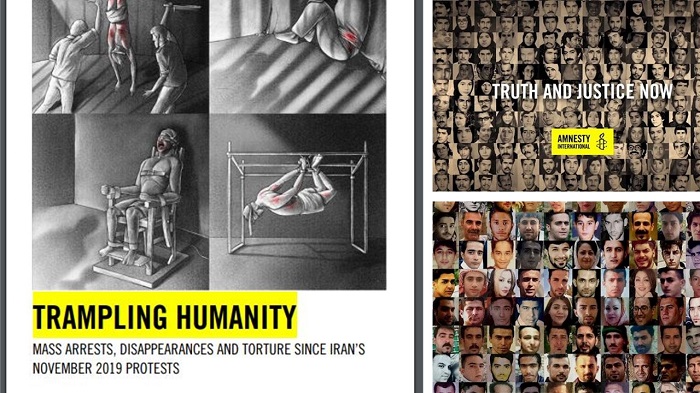
(PMOI / MEK Iran) and (NCRI): Amnesty International reports shocking Iranian regime human rights abuse.
MEK Iran (follow us on Twitter and Facebook)
and People’s Mojahedin Organization of Iran – MEK IRAN – YouTube
